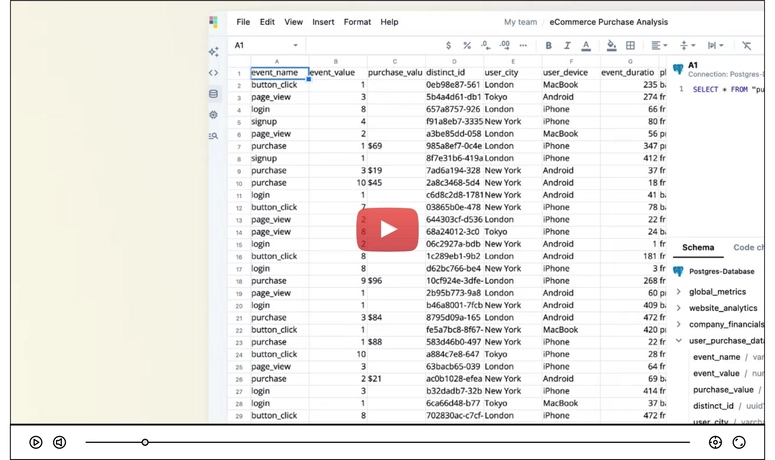The world of event planning is evolving rapidly, driven by technology and changing attendee expectations. As events grow in scale and complexity, event planners are increasingly turning to digital tools to simplify management tasks, enhance attendee experiences, and deliver greater value. Among the most indispensable tools in modern event planning are event management apps. These apps are more than just convenient—they are a fundamental part of planning successful events in the future.
In this article, we will explore why event management apps are becoming essential for the future of event planning and how they offer numerous benefits to both organizers and attendees.
1. Streamlining Event Coordination and Management
One of the key reasons event management apps are indispensable is their ability to streamline the entire event coordination process. Organizing an event typically involves juggling multiple tasks such as scheduling sessions, coordinating with vendors, managing registrations, and handling logistics. Traditional methods of managing these tasks can be chaotic, often leading to missed deadlines or communication breakdowns.
*Event management apps simplify this by offering:
*
Centralized Task Management: Organizers can manage all event tasks from a single platform, assigning responsibilities and tracking progress in real time.
Collaborative Features: Team members can work together on tasks, share notes, and update schedules, reducing the need for endless emails and meetings.
Automated Notifications: These apps send reminders and updates about important deadlines or changes to keep everyone on track.
By centralizing and automating many planning aspects, event apps help organizers stay organized, save time, and prevent mistakes.
2. Enhancing Attendee Experience with Personalization
In today’s competitive event landscape, providing a personalized experience for attendees is more important than ever. Attendees expect events to cater to their individual preferences and needs, whether it’s through customized agendas, networking opportunities, or easy access to event materials.
*Event management apps enhance attendee experience by offering:
*
Personalized Schedules: Attendees can select their preferred sessions, workshops, and networking opportunities, creating a custom event agenda that suits their interests.
Real-time Updates: Event apps provide instant updates about changes to schedules, speakers, or important announcements, ensuring attendees are always informed.
Interactive Features: Attendees can participate in live polls, Q&A sessions, and discussions, making them feel more engaged and connected to the event.
With these features, event management apps help create a seamless and tailored experience for attendees, leading to higher satisfaction and engagement.
3. Real-time Communication and Collaboration
Communication is a crucial aspect of any event, and the ability to stay connected is especially important in large-scale or hybrid events. Event management apps facilitate real-time communication, making it easier for both organizers and attendees to stay in touch.
*Event apps include:
*
In-app Messaging: Organizers can send updates to attendees or staff members through messaging features, answering questions and resolving issues instantly.
Push Notifications: These apps send instant alerts to attendees about schedule changes, session reminders, or emergency updates, ensuring everyone is on the same page.
Networking Opportunities: Many event apps feature networking tools that allow attendees to connect with each other based on shared interests or goals, fostering collaboration and relationship-building.
By providing direct lines of communication and ensuring that everyone has access to the information they need, event management apps enable smoother operations and better engagement.
4. Data-Driven Insights and Analytics
In today’s data-driven world, the ability to track and analyze event performance is essential. Event management apps provide organizers with valuable insights into various aspects of their event, including attendee engagement, session popularity, and overall satisfaction.
*With real-time analytics, organizers can:
*
Measure Attendee Engagement: Track which sessions, speakers, or activities are most popular, helping organizers refine future events.
Gather Feedback Efficiently: Collect post-event surveys or in-app ratings to evaluate attendee satisfaction and identify areas for improvement.
Generate Reports: Automated reporting features provide insights into registration data, revenue, attendee demographics, and more, helping organizers assess event success.
These data-driven insights help organizers make informed decisions, refine their strategies, and improve the quality of future events.
5. Simplifying Event Registration and Ticketing
Managing event registration and ticketing is one of the most time-consuming tasks in the planning process. Event management apps simplify this process by offering online registration, payment processing, and ticket distribution all in one platform.
*Event apps enable:
*
Online Registration Forms: Attendees can register quickly through a user-friendly interface, saving time and reducing the risk of errors.
Customizable Ticketing Options: Organizers can create different ticket types, offer early bird discounts, and set up promotional codes, all within the app.
Secure Payment Gateways: Event apps provide secure payment processing, ensuring that transactions are safe and seamless for attendees.
By automating these aspects, event management apps reduce administrative burdens, streamline registration processes, and help organizers focus on delivering an exceptional event experience.
6. Facilitating Hybrid and Virtual Events
The rise of virtual and hybrid events, accelerated by the COVID-19 pandemic, has reshaped the event industry. As in-person events are combined with virtual components, event management apps have become essential tools for managing these complex formats.
*Event apps support hybrid and virtual events by offering:
*
Virtual Event Platforms: Many event management apps feature live streaming capabilities, allowing virtual attendees to participate in sessions and interact with speakers.
Networking Tools: Virtual networking lounges and AI-powered matchmaking connect attendees with similar interests or business goals, creating meaningful interactions.
Event Integration: Hybrid events often require seamless integration of both in-person and virtual elements, and event apps ensure everything works together smoothly.
As virtual and hybrid events continue to grow, event management apps are increasingly necessary for managing these dynamic formats and ensuring that both in-person and virtual attendees have a seamless experience.
7. Cost and Time Efficiency
The logistics of event planning often require significant time and resources. Event management apps help reduce costs and time by automating manual tasks, eliminating the need for physical paperwork, and reducing the likelihood of errors.
*App features such as:
*
Automated Reporting and Data Collection: By automating data collection and reporting, event apps save organizers the time and effort involved in manual processes.
Vendor and Budget Management: Organizers can easily track expenses, monitor vendor performance, and ensure that budgets stay on track.
Efficient Communication: Direct messaging and notifications reduce the need for constant phone calls or emails, leading to faster decision-making.
Ultimately, event apps help streamline operations and lower costs, contributing to a more efficient and cost-effective planning process.
Conclusion: The Future of Event Planning Is Digital
Event management apps are no longer a luxury—they are essential tools for modern event planners. With their ability to streamline coordination, enhance attendee engagement, provide data-driven insights, and support hybrid and virtual events, these apps have become indispensable for successful event planning.
As the event industry continues to evolve, embracing digital tools like event management apps will be crucial for staying competitive, ensuring smooth operations, and delivering exceptional experiences. For event organizers looking to stay ahead in a rapidly changing landscape, investing in a reliable event management app is the key to success.





Top comments (0)